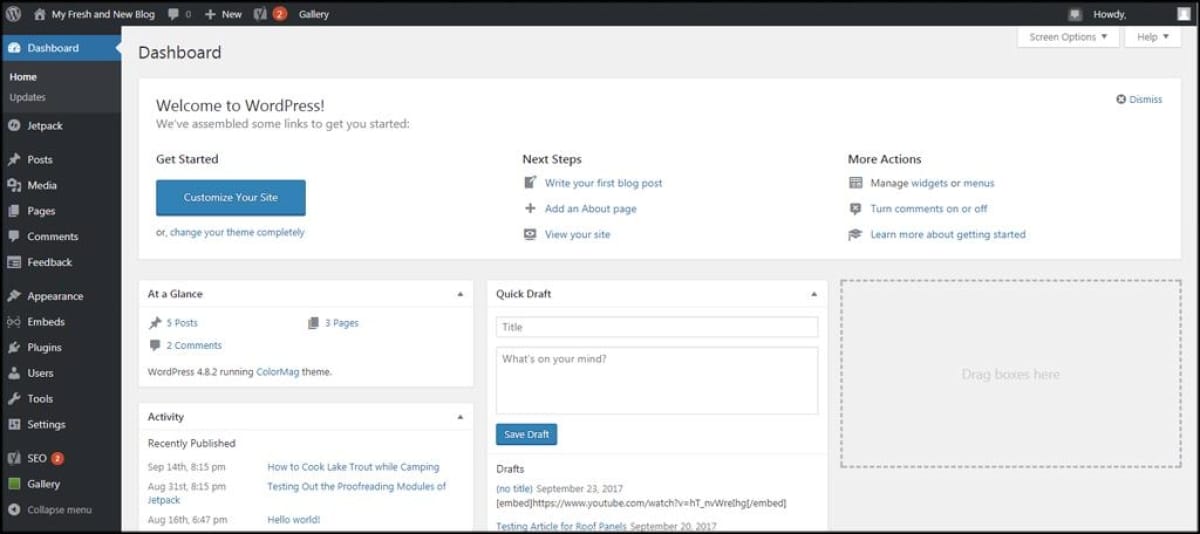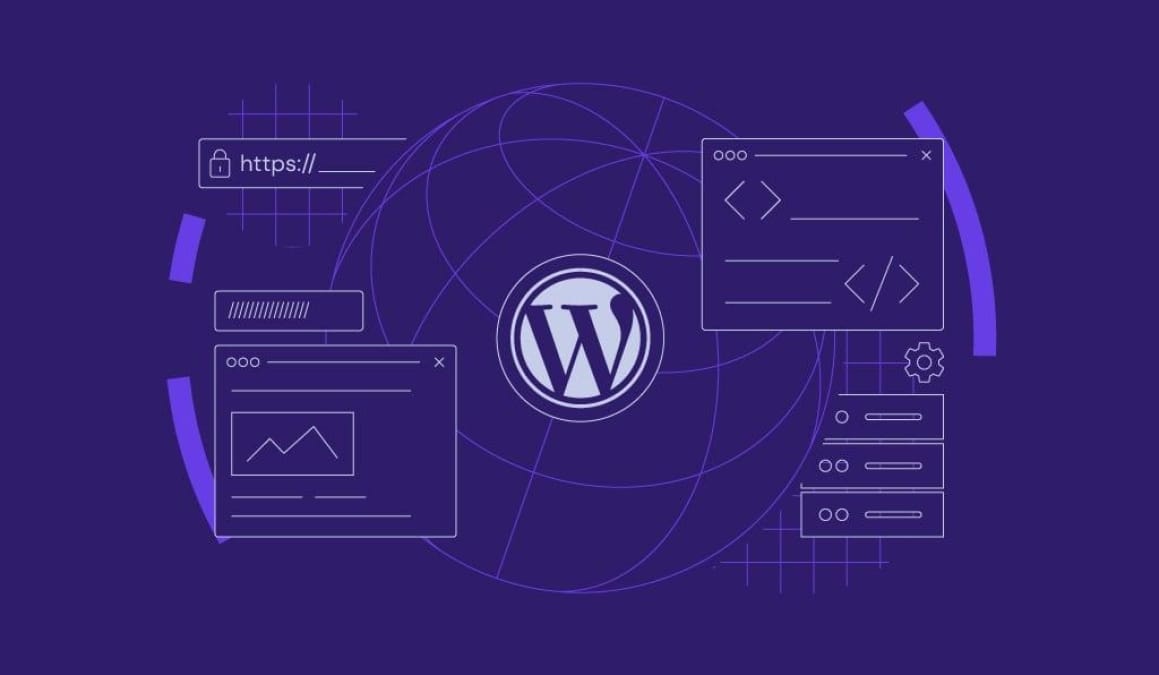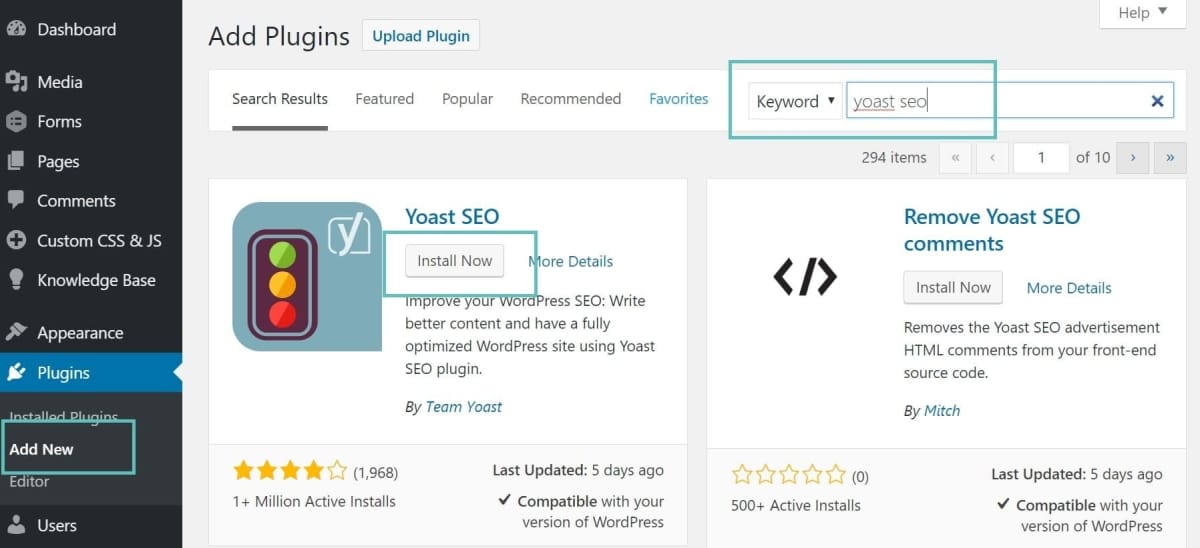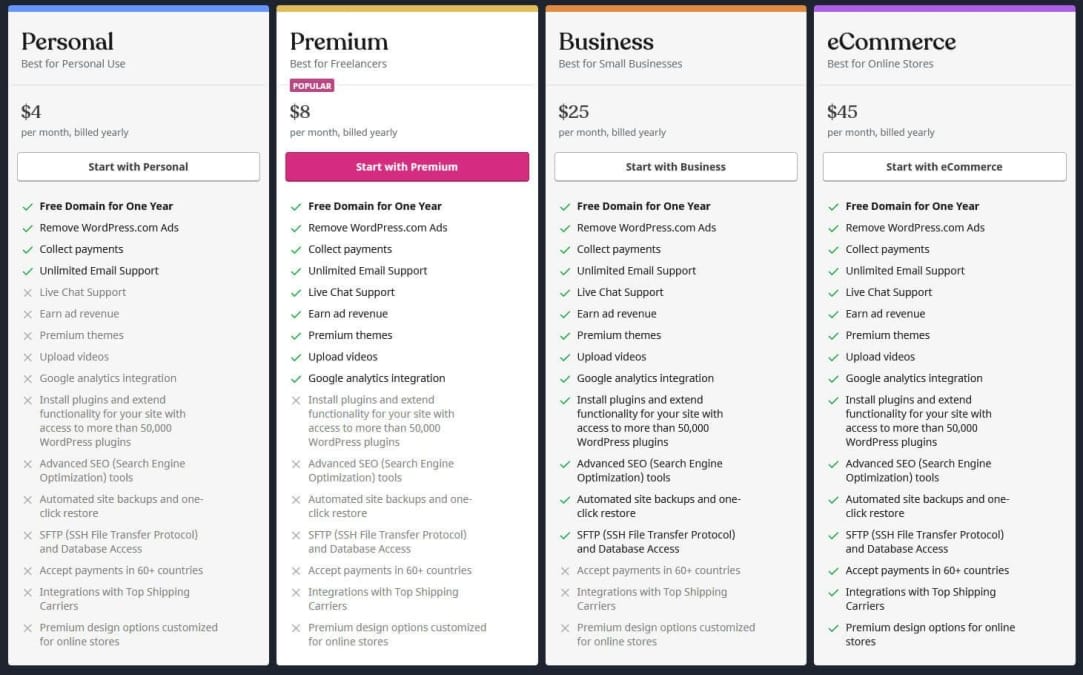If you’re a business owner looking to build an online presence, chances are you’ve heard about WordPress. This platform is a go-to for millions of websites,but how does it actually work? In this guide,we’ll break it down in simple terms,so you don’t have to be a tech whiz to understand it. Whether you’re starting from scratch or thinking about sprucing up your existing site, knowing the basics of WordPress can save you time and headaches down the road.So, grab a cup of coffee, and let’s dive into the nuts and bolts of what makes WordPress tick and how it can benefit your business.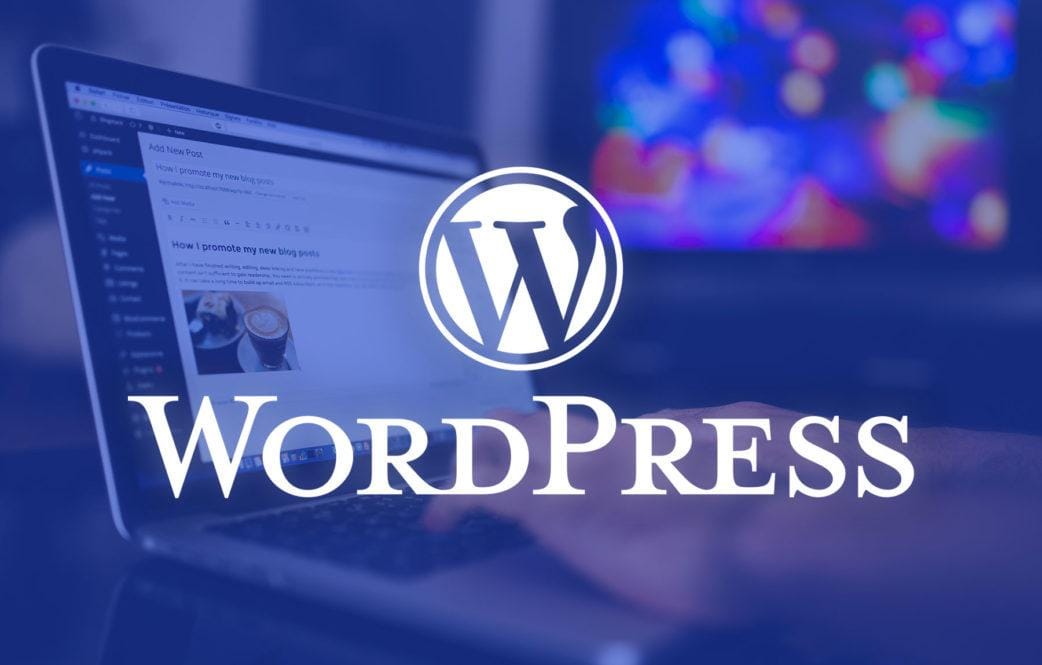
Table of Contents
- Understanding the Basics of WordPress: Your Key to a Successful Online Presence
- choosing the Right Hosting for Your WordPress Site: Tips for Business Owners
- Customizing Your WordPress Website: Essential Plugins and Themes to Consider
- Boosting Your Site’s Visibility: SEO Best Practices for WordPress businesses
- Maintaining Your WordPress Site: Strategies for Security and Performance Optimization
- Q&A
- In Conclusion
Understanding the Basics of WordPress: Your Key to a Successful Online Presence
getting started with WordPress might feel a bit overwhelming, but it’s essentially about understanding how the platform operates. At its core, WordPress is a content management system (CMS) designed to simplify creating and managing your website. Its user-friendly interface allows you, even if you’re not tech-savvy, to set up pages, posts, and even a blog with relative ease. Here are the basic components you need to grasp:
- Posts vs. Pages: Understand the difference—posts are dynamic and often used for blogs, while pages are static, perfect for information like your “About” or ”Contact” sections.
- The Dashboard: This is your control center! Here, you’ll manage content, customize themes, and navigate through plugins that enhance functionality.
- Themes: A theme controls the visual design of your website. Choosing the right one is crucial as it sets the first impression for your visitors.
Now, let’s talk about plugins. These handy tools extend WordPress’s functionality. Think of them like apps for your phone: they can significantly enhance your website without requiring you to code. Here are a few essentials that every business owner should consider:
- SEO Plugins: Tools like Yoast SEO help optimize your content, making it easier to be found by search engines.
- Analytics Plugins: Tools like Google Analytics give you insight into your site’s performance so you know who’s visiting and what content resonates.
- Security Plugins: Protect your site with security plugins that help fend off unwanted attacks and keep your data safe.
For those of you thinking about monetizing your website, WordPress supports various methods. It allows integrations with eCommerce plugins, turning your site into an online store without missing a beat. Consider this swift glimpse of popular options:
| Plugin | Purpose |
|---|---|
| WooCommerce | Create a fully functional online store. |
| Easy Digital Downloads | Sell digital products effortlessly. |
| MemberPress | Build membership sites for premium content. |
The beauty of WordPress lies in its flexibility. Whether you’re establishing a portfolio, creating a blog, or running an online store, WordPress equips you with the tools you need to succeed. Plus, the community backing it is vast and welcoming, offering loads of resources—from forums to tutorials—where you can find support and learn more. Understanding these basics opens the door to building a robust online presence that can grow alongside your business.
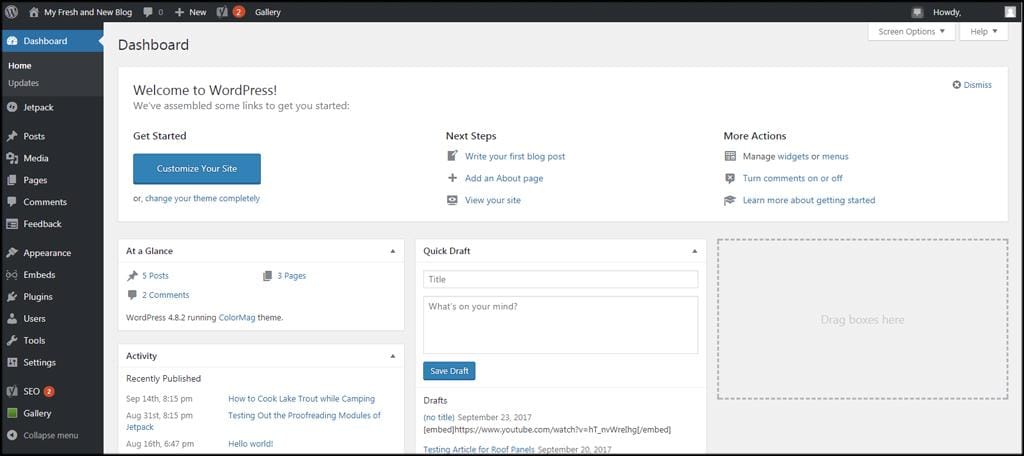
Choosing the Right Hosting for Your WordPress Site: Tips for Business Owners
When it comes to hosting your WordPress site, there’s no one-size-fits-all solution.different businesses have unique needs; thus,understanding those needs is crucial. Start by assessing your website’s purpose. Are you running a blog, an online store, or a corporate site? Each type of site might demand different hosting features. It’s critically important to consider aspects such as traffic expectations, site speed, and security requirements. Opting for a hosting provider that specializes in WordPress can often simplify things, offering tailored support and optimization for your site.
Performance is another key factor. You wouldn’t want your site crashing during peak hours or taking ages to load. Look for hosting with solid uptime guarantees and fast servers. Manny reputable WordPress hosts provide free Content Delivery Networks (CDNs) that cache your content across various locations – making it quicker for your visitors to access your site, no matter where they are. Here’s a quick comparison chart of common hosting features you might want to consider:
| Hosting Provider | uptime Guarantee | Storage | Support |
|---|---|---|---|
| Provider A | 99.9% | 50 GB | 24/7 Live Chat |
| Provider B | 99.95% | 100 GB | Email Support Only |
| Provider C | 99.98% | Unlimited | Phone & Chat |
Don’t overlook scalability either. As your business grows, so will your website traffic, which means you might need more resources down the road. Choose a hosting plan that allows you to easily upgrade without a major hassle. Some providers are more flexible about this than others. And let’s not forget about customer support. It’s your safety net during tough times. Look for hosts known for responsive and informed support, especially ones that offer WordPress-specific assistance.

Customizing Your WordPress website: Essential plugins and Themes to Consider
When it comes to giving your WordPress website a personal touch, two essential components come into play: themes and plugins.Themes dictate the look and feel of your site. They control everything from layout to colors to typography. A well-chosen theme can make your site pop, grabbing potential customers’ attention right off the bat. Consider options like:
- Astra: Lightweight and super customizable.
- Divi: Great for drag-and-drop builders.
- OceanWP: Versatile, with tons of demo content.
On the flip side, plugins add functionality to your website, allowing you to do things like optimize for SEO, integrate social media, or improve site speed. Pick the right plugins,and you’ll be well on your way to a more user-friendly experience.Some recommendations include:
- Yoast SEO: Helps improve your site’s visibility in search engines.
- WooCommerce: If you’re running an online store, this is a must.
- WPForms: Create custom forms easily for lead generation.
The good news is that customizing your site doesn’t have to be a hassle. Many themes and plugins play nice together and come with extensive documentation. Just remember to always keep performance in mind; too many plugins can slow your site down.Check your current setup regularly and make adjustments as necessary. If you’re keen on optimizing your choices, here’s a quick comparison table for easy reference:
| Theme/Plugin | Key Feature | Best For |
|---|---|---|
| Astra | Speed & Customization | Fast-loading sites |
| Yoast SEO | SEO Optimization | Improving search traffic |
| WooCommerce | E-commerce Capabilities | Online stores |
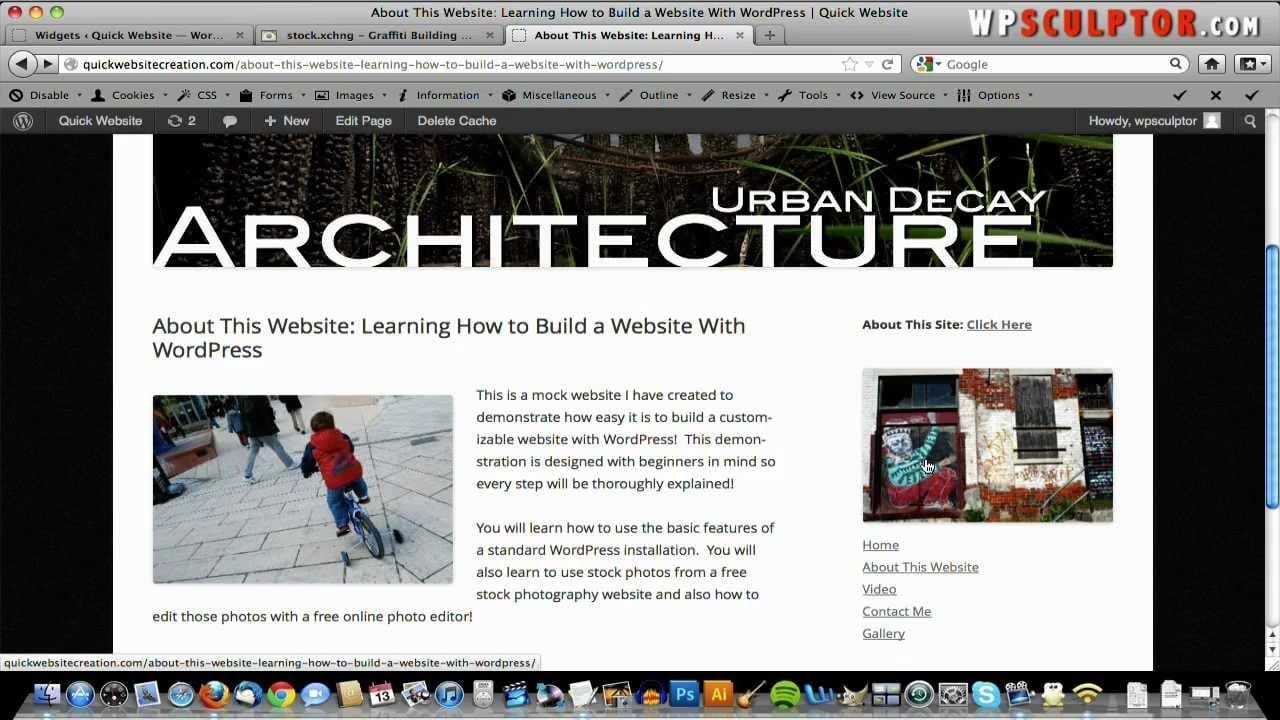
Boosting Your Site’s Visibility: SEO Best Practices for WordPress Businesses
To get your business noticed online, it’s crucial to have a solid SEO strategy in place. WordPress offers several built-in features and plugins that can help you optimize your site effectively. Start with keywords; make sure you’re using relevant phrases throughout your content.Use tools like Google keyword Planner to find what your audience is searching for. Integrating these keywords naturally into your posts and pages will improve your ranking on search engines.
Another important factor is meta tags. These are snippets of text that describe your page content in search results. Make sure to craft compelling title tags and meta descriptions for each page. Think of them as your site’s calling card; they can affect whether someone clicks on your link or not. Yoast SEO is a popular plugin that can help you to manage these tags and provide real-time feedback on your SEO performance.
Don’t overlook the power of internal linking. By linking to other relevant pages or posts on your site, you not only keep visitors engaged longer but also help search engines understand your content structure. When setting up links,use descriptive anchor text. This gives users and search engines a clear idea of what to expect on the linked page.
| SEO Element | Purpose | Tips |
|---|---|---|
| Keywords | Improve search rankings | Use naturally throughout content |
| Meta Tags | Summarize page for search engines | Craft compelling descriptions |
| Internal Links | Keep users on your site longer | Use descriptive anchor text |

Maintaining Your WordPress Site: Strategies for Security and Performance Optimization
Keeping your WordPress site safe and running smoothly isn’t just a one-time task; it’s an ongoing commitment. First on your list should be regular updates.WordPress frequently rolls out updates for core files, themes, and plugins. Ignoring these updates can leave your site vulnerable. Set a reminder to check for updates at least once a week. Alternatively, consider using automatic updates for minor releases, which helps keep your site secure without the extra hassle.
Securing your site is equally essential. Start by implementing strong passwords for all user accounts and enabling two-factor authentication for an added layer of security. utilizing security plugins like Wordfence or Sucuri can definitely help detect and address threats before they become serious issues. Additionally, consider a regular backup strategy using plugins such as UpdraftPlus to ensure you can quickly recover your site in case of a mishap.
performance optimization is another piece of the puzzle. No one likes waiting for a page to load! Take advantage of caching plugins like W3 total Cache or WP Super Cache to speed up your site. Hosting matters too—choose a reputable service that offers solid resources tailored for WordPress. Image optimization is key as well; plugins like Smush can help reduce file sizes without sacrificing quality, ensuring your visuals load quickly.
| Strategy | Description |
|---|---|
| Regular Updates | Stay on top of WordPress, theme, and plugin updates. |
| Strong Passwords | Use complex passwords and 2FA for all accounts. |
| Caching Solutions | Implement caching plugins for faster load times. |
| Image Optimization | Compress images to enhance speed without losing quality. |

Q&A
Q&A: Understanding How WordPress Works: A Simple Guide for Business Owners
Q1: What is WordPress, and why should I use it for my business?
A1: WordPress is a powerful content management system (CMS) that makes it easy for anyone to set up and manage a website. It’s super popular among business owners because it’s user-friendly and offers plenty of customization options.Whether you’re running an e-commerce site, a blog, or a portfolio, WordPress provides the tools you need to create an effective online presence without needing to be a tech whiz.
Q2: How does WordPress work?
A2: At its core, WordPress is built on a PHP backend and uses a MySQL database. When you create a post or page, it gets stored in the database.When someone visits your site, WordPress pulls this information up and displays it for the visitor. You don’t need to worry about all the technical jargon, though! The easy-to-use dashboard allows you to manage content, upload images, and even add plugins to enhance functionality.
Q3: What’s the difference between WordPress.com and WordPress.org?
A3: Great question! WordPress.com is a hosted platform that takes care of most technical aspects for you, but it comes with limitations, especially for branding and monetization. On the other hand, WordPress.org is self-hosted, meaning you get full control over your site, complete customization, and the ability to install plugins. For business purposes, most owners find WordPress.org to be the better option since you have the freedom to grow your website as needed.
Q4: Can I customize my WordPress site without coding skills?
A4: Absolutely! WordPress comes with thousands of themes and plugins that let you customize your site’s look and functionality without touching a line of code. You can change layouts, colors, and fonts easily through the WordPress Customizer. plus, many drag-and-drop builders are available that make it even simpler to design pages just the way you want them.
Q5: What are plugins, and why are they important?
A5: plugins are like apps for your website. They add features and functionality without needing to code. Want to improve your SEO? There’s a plugin for that. need to add an online store? Yep, there’s a plugin for that, too. With thousands of options available, you can easily enhance your WordPress site to meet your specific business needs.
Q6: How do I keep my WordPress site secure?
A6: Keeping your WordPress site secure is crucial, and thankfully, there are some straightforward steps you can take. Start by choosing a reliable hosting provider, keep your WordPress installation, themes, and plugins updated, and use strong passwords. Additionally, implementing security plugins can help safeguard your site against threats. Keeping backups is also a smart move—just in case something goes sideways.
Q7: How can I make my WordPress site SEO-friendly?
A7: Good SEO means more visibility,which is key for any business. To make your site SEO-friendly, focus on creating quality content with relevant keywords and using proper tags. Install an SEO plugin to help guide you through the best practices, and make sure to optimize your images and URLs. Regular blogging and promoting your content can also boost your site’s search engine ranking over time.
Q8: What should I consider when choosing a hosting provider?
A8: When picking a hosting provider, look for reliability, speed, customer support, and scalability. You want a host that offers excellent uptime, so your site is always accessible. also, check for features like automated backups, an easy-to-use control panel, and if they specialize in WordPress hosting. It makes a difference for performance and support down the line.
This Q&A offers just the right amount of insight into how WordPress works while keeping things casual and relatable for business owners. If you’re thinking about jumping into the WordPress world, you’re in for an easy ride!
In Conclusion
In wrapping things up, understanding how WordPress works can be a game-changer for your business. Whether you’re looking to set up a blog, create an online store, or showcase your services, WordPress offers the flexibility and tools to make it happen. With a little know-how, you can customize your site to reflect your brand and engage your audience effectively.
Don’t forget, the more you familiarize yourself with the platform, the smoother the process will be. From choosing the right theme and plugins to optimizing your site’s SEO, each step enhances your online presence.Remember, it’s not just about having a website; it’s about creating a space that connects with your customers. So dive in, keep learning, and soon enough, you’ll see just how powerful a WordPress site can be for your business growth.
If you’ve got any questions or need more tips along the way, don’t hesitate to reach out. Happy website building!

